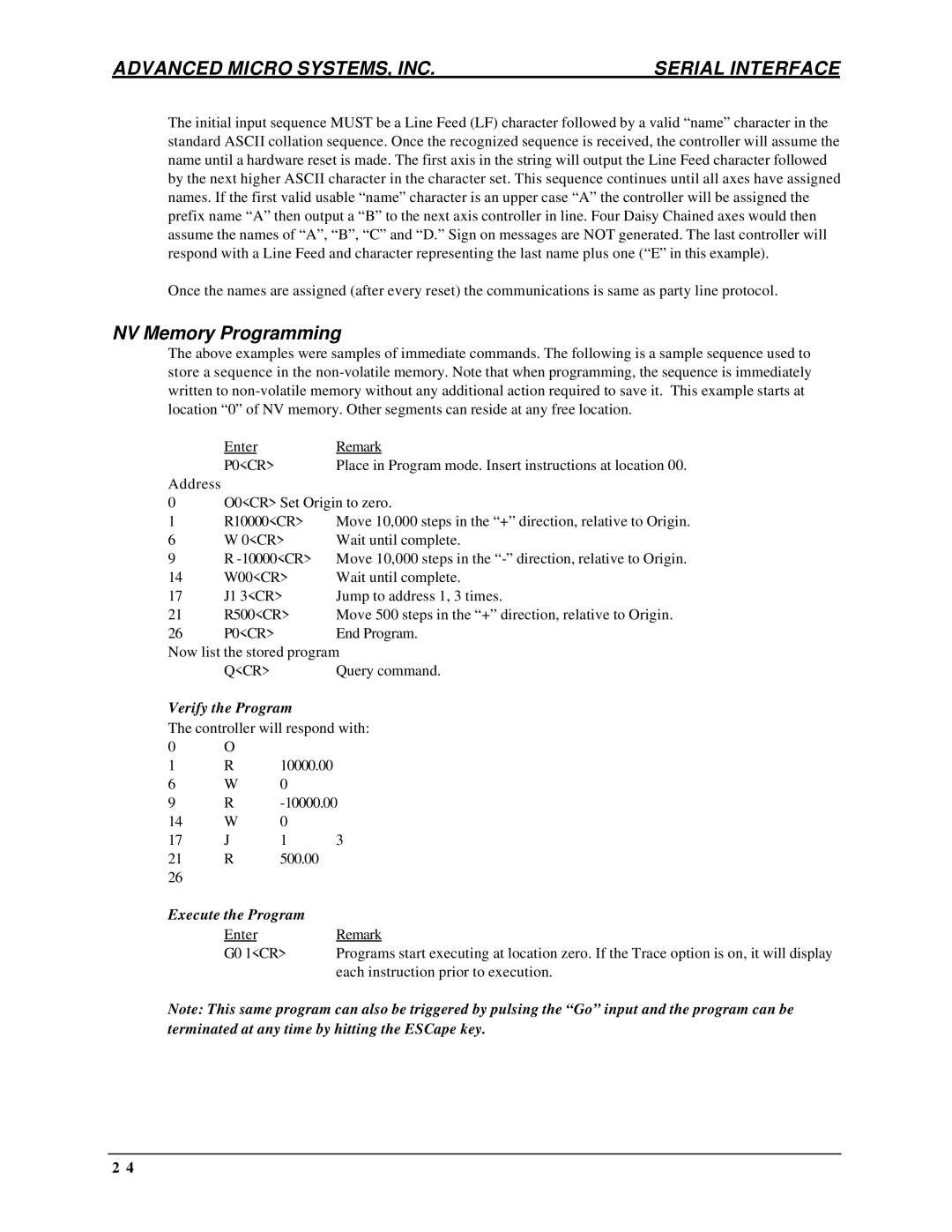ADVANCED MICRO SYSTEMS, INC. | SERIAL INTERFACE |
The initial input sequence MUST be a Line Feed (LF) character followed by a valid “name” character in the standard ASCII collation sequence. Once the recognized sequence is received, the controller will assume the name until a hardware reset is made. The first axis in the string will output the Line Feed character followed by the next higher ASCII character in the character set. This sequence continues until all axes have assigned names. If the first valid usable “name” character is an upper case “A” the controller will be assigned the prefix name “A” then output a “B” to the next axis controller in line. Four Daisy Chained axes would then assume the names of “A”, “B”, “C” and “D.” Sign on messages are NOT generated. The last controller will respond with a Line Feed and character representing the last name plus one (“E” in this example).
Once the names are assigned (after every reset) the communications is same as party line protocol.
NV Memory Programming
The above examples were samples of immediate commands. The following is a sample sequence used to store a sequence in the
| Enter | Remark |
| P0<CR> | Place in Program mode. Insert instructions at location 00. |
Address |
|
|
0 | O0<CR> Set Origin to zero. | |
1 | R10000<CR> | Move 10,000 steps in the “+” direction, relative to Origin. |
6 | W 0<CR> | Wait until complete. |
9 | R | Move 10,000 steps in the |
14 | W00<CR> | Wait until complete. |
17 | J1 3<CR> | Jump to address 1, 3 times. |
21 | R500<CR> | Move 500 steps in the “+” direction, relative to Origin. |
26 | P0<CR> | End Program. |
Now list the stored program | ||
| Q<CR> | Query command. |
Verify the Program
The controller will respond with:
0 | O |
|
|
1 | R | 10000.00 |
|
6 | W | 0 |
|
9 | R | ||
14 | W | 0 |
|
17 | J | 1 | 3 |
21 | R | 500.00 |
|
26 |
|
|
|
Execute the Program |
| ||
| Enter |
| Remark |
| G0 1<CR> | Programs start executing at location zero. If the Trace option is on, it will display | |
|
|
| each instruction prior to execution. |
Note: This same program can also be triggered by pulsing the “Go” input and the program can be terminated at any time by hitting the ESCape key.
2 4
